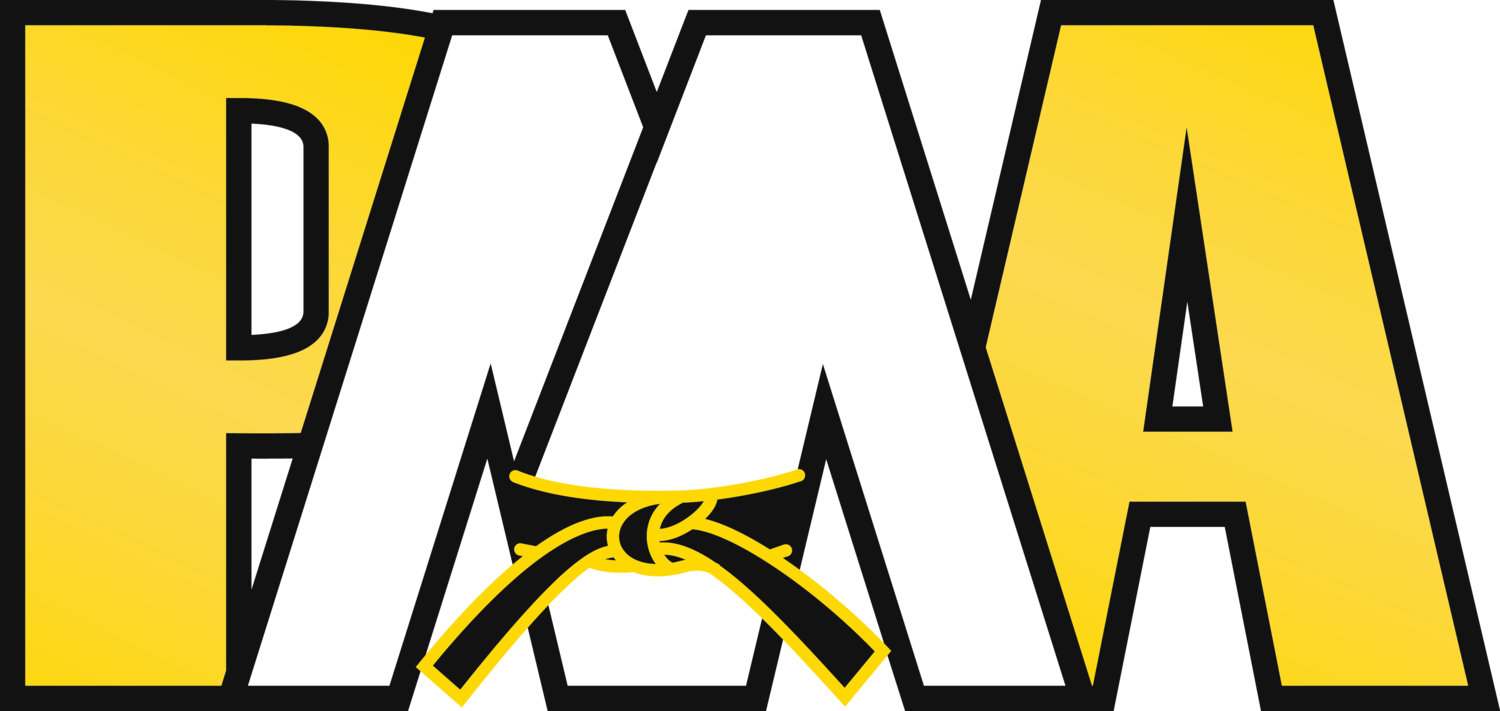Today, I want to brag on one of our students. I'm a little biased obviously, but very proud, so I'd like to take a minute to brag about my wife, Brittany Corrigan.
For those that don't know, earlier this year she was selected to test for her Black Belt in Kenpo and is now in the preparation phase, but the story I want to tell goes back to last summer.
One year ago, my wife came back to PMA to get back to training after giving birth to our second child, Auggie. Without going too far off on a tangent, let me just give so much credit to women for what they have to go through with pregnancy, childbirth, and the recovery afterward. I know we see some stories about some women snapping right back, but I've seen first hand how difficult it can be (twice!), and all I can say is WOW.
So one year ago, Brittany returned to training at 212 pounds, and at 6 feet tall her body fat was at 38% (yes, she's approved of me giving you all of these numbers!). Today, she is at 174 pounds, and 29% body fat- officially in the first level of healthy body fat percentage for women (read more about the different levels here - http://www.precisionnutrition.com/cost-of-getting-lean-infographic). Best of all, she has done it in what I consider the best possible way - slowly and sustainably.
Brittany didn't go on a diet. In fact, we just finished eating at Chuy's for our date night, and I watched her eat a burrito (slowly and mindfully - more on that later!).
Being a personal trainer and nutrition/lifestyle coach, I could've designed an exercise program and meal plan for her that would have helped her lose the weight and body fat even faster. But since becoming a Precision Nutrition coach a couple of years ago, I know that is not the ideal way.
I've seen it play out so many times, and surely you have too. I look in the mirror and realize I'm not quite in as good of shape as I'd like to be and decide to do something about it. Well, I've heard a lot lately about the ________ diet or this new _____________ workout that people seem to really get great results with. So, I think I'll try that!
A few weeks or months later, assuming I stick with the program, voila! I've lost weight and have gotten in great shape! Well good, I'm glad that's done with, that diet sucked! Or you know, I was getting sick of that workout!
A few months pass by...
I look in the mirror, and huh? I seem to be getting out of shape (maybe even a little worse than last time this happened). But you know what? That program I did last time worked! Let's get back on it!
And repeat...
Most of us have gone through this process, and depending on your age, you may have done it over and over again throughout your life!
So what did Brittany do?
1. Martial Arts Training (2-4x per week)
Last year she got back to her martial arts training 2-4 times per week. This part is essential because finding a hobby like this can help give you a little extra motivation in the nutrition and fitness areas of your life because they will help your performance with your hobby/sport! I say 2-4 because we have two small children and sometimes life interrupts your ideal schedule for the day. It's critical that you consider this, or you can end up letting your whole plan be derailed by your normal life. If you plan a routine to get in shape that doesn't fit into the context of your real life, then it is not going to work. If you just make it work for the short term (90-day program just to get in shape, etc.), then you will go back to where you started before the program when it's finished.
2. Strength Training (3x per week) & Running (1-3x per week)
She does a simple strength training workout I've put together for her that includes body weight, cinder block, and TRX exercises. She does this 3x/week and does a shorter modified version at home if she can't squeeze in the whole thing. In addition to this, she runs 1-3x/week.
3. Nutrition & Lifestyle Habits
She has gone through a year of PN coaching learning habits one at a time that change key areas of her lifestyle but don't require her to adapt something that she cannot maintain. These habits are things like eating slowly, stopping eating before she's stuffed, balancing her meals correctly, de-stressing, creating a good sleep routine, planning meals, and food prepping for the week. In the coaching program, she's learned about each habit, and built the skills to put them to practice. Best of all, she still gets to enjoy foods that she likes (like that burrito tonight)!
She has done it all in a way that is sustainable, and while she still has high goals for herself over the next few months preparing for her Black Belt test in December, she has adopted the habits that will prepare her for a lifetime of health and happiness.
I am incredibly proud of her, and can't wait to see where she ends up in December, and afterward. After all, Black Belt is just the beginning!
